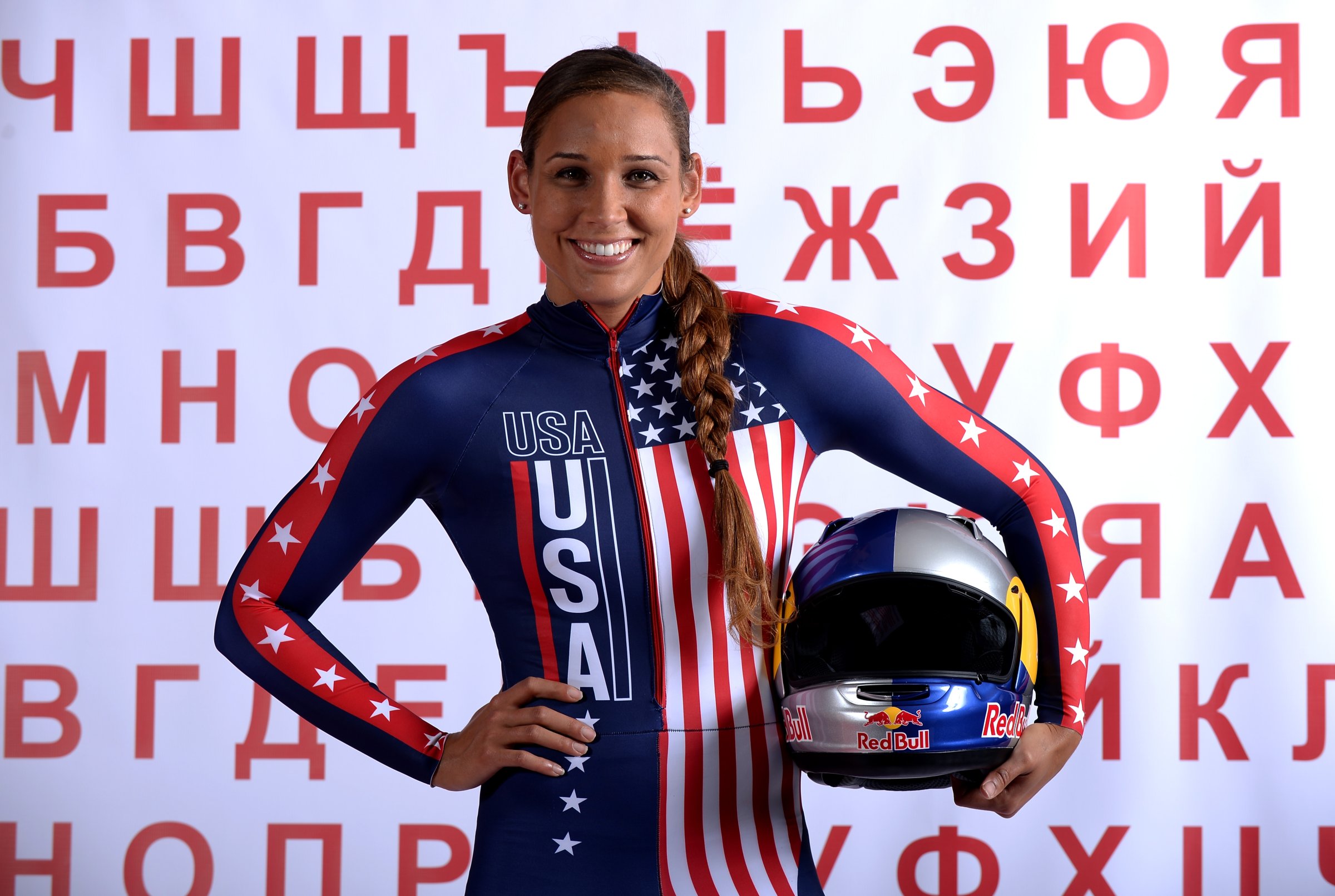
The latest Lolo Jones saga teaches us this: if you’re going to dedicate your life to being an Olympian, you might not want to push a bobsled.
Because no other Olympic athlete is more replaceable. Jones, the summer Olympic hurdler who lost her chance at sure gold by hitting a hurdle in Beijing, and who fell one-tenth of a second short of snaring a bronze in London, took up bobsled in the fall of 2012; the sport offered a chance to finally get that elusive Olympic medal. She made the U.S. team team for Sochi, as one of the three push athletes paired with one of three Team USA drivers (the men also have a four-man bobsled race; the women don’t). Jones’ selection has caused a backlash: two more experienced push athletes were passed over. “I should have been working harder on gaining Twitter followers than gaining muscle mass,” bobsledder Emily Azevedo, who along with teammate Katie Eberling was in contention for the spot given to Jones, told USA Today Sports. Jones has more than 375,000 Twitter followers; Azevedo has just over 2,000. Azevedo finished fifth in Vancouver; Eberling has been competing since 2011.
“I feel this year there was a certain agenda,” Eberling told USA Today. “It’s no fault of my teammates. There’s been a lot of inconsistencies and that makes you wonder what’s going on. It’s not right.”
At least one men’s bobsledder doesn’t seem too thrilled either. “It’s hard for me to name one or two athletes that would completely agree with that decision,” push athlete Curt Tomasevicz told USA Today. Also, said Tomasevicz, “We’re returning gold medalists and not getting much PR because all the bobsled attention is on Lolo,” he said. “It brings a lot of attention to the sport which can be a good thing, but I’m not just sure who is benefiting from that attention.”
Jones is a media star, and the outsized attention she receives has a habit of ticking off her teammates. Before the London Olympics, Jones revealed that she was a virgin; predictably, her cultural currency soared. In London, the other U.S. hurdlers shared their frustrations with the Lolo-hype machine. One columnist wrote that “NBC has a teen crush on LoLo Jones.” With Lindsey Vonn out of the Olympics, the network needs Jones’ star power. NBC officials denied influencing the decision to put Jones on the team.
Recent results — which are important, because you want Olympic athletes to peak now — suggest that Jones has sledding skills. Jones and driver Jazmine Fenlator, her likely partner in Sochi, finished seventh at the World Cup competition in Igls, Austria, on Jan. 19. When Fenlator raced with Eberling on Jan. 12, in St. Moritz, they finished 17th. Azevedo and Fenlator finished fourth in the Lake Placid World Cup; but that race took place on Dec. 14.
On Jan. 5th, Jones raced with top driver Elana Meyers in another World Cup; they finished in second place. “Everyone may not agree with the decision, but the fact of the matter is, the numbers supported the selection committee’s decision and 3 athletes were chosen,” Meyers wrote on Facebook. “The three that were chosen have worked hard to earn there [sic] spots, and I am proud to call them my Olympic teammates.”
Unfortunately for Eberling and Azevedo, bobsled pushing isn’t terribly difficult to master. If it was, Jones would not have finished second in the world just a little over a year after picking up the sport. Notice how Jones didn’t try out for the figure skating or ski jumping or snowboarding team. As a bobsled push athlete, your job is to build speed at the start, efficiently hop in the sled, then pretty much let the driver do the work down the track. You need to be fast, strong, and coordinated: an Olympic hurdler fits the bill pretty nicely. (Another summer Olympic convert, 2004 silver medalist sprinter Lauryn Williams, also made the team.) Jones isn’t the first Olympic bobsled carpetbagger; former NFL running back Herschel Walker competed in the 1992 Olympics, and former Chicago Bears wide receiver Willie Gault was an alternate on the 1988 U.S. Olympic team.
No doubt, Jones’ Q-rating gave her an advantage. Eberling and Azevedo had to crush Jones to earn that spot. If they were going against, say, a rookie bobsledder named Jen Jones, their experience would have held more sway.
Still, if Jones can make a credible challenge to make the Olympic team after just two seasons in the sport, maybe Eberling and Acevedo, unfortunately, picked the wrong sport.
Tie goes to the runner.
More Must-Reads From TIME
- The 100 Most Influential People of 2024
- The Revolution of Yulia Navalnaya
- 6 Compliments That Land Every Time
- What's the Deal With the Bitcoin Halving?
- If You're Dating Right Now , You're Brave: Column
- The AI That Could Heal a Divided Internet
- Fallout Is a Brilliant Model for the Future of Video Game Adaptations
- Want Weekly Recs on What to Watch, Read, and More? Sign Up for Worth Your Time
Write to Sean Gregory at sean.gregory@time.com